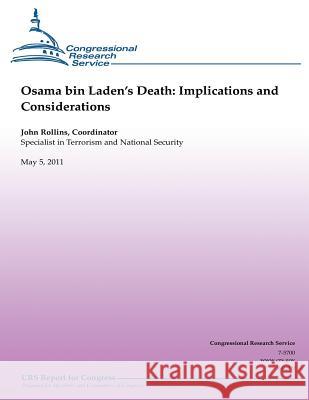Osama bin Laden's Death: Implications and Considerations » książka
Osama bin Laden's Death: Implications and Considerations
ISBN-13: 9781481217170 / Angielski / Miękka / 2012 / 28 str.
The May 1, 2011 killing of Osama bin Laden (OBL) by U.S. forces in Pakistan has led to a range of views about near- and long-term security and foreign policy implications for the United States. Experts have a range of views about the killing of OBL. Some consider his death to be a largely symbolic event, while others believe it marks a significant achievement in U.S. counterterrorism efforts. Individuals suggesting that his death lacks great significance argue that U.S. and allied actions had eroded OBL's ability to provide direction and support to Al Qaeda (AQ). For these analysts, OBL's influence declined following the U.S. invasion of Afghanistan to a point where prior to his death he was the figurehead of an ideological movement. This argument reasons that a shift of terrorist capability has occurred away from the core of AQ to affiliated organizations. Still others argue that OBL pursued a strategy of developing the AQ organization into an ideological movement thus making it more difficult to defeat. They contend that, even if OBL were no longer involved in the decision-making apparatus of AQ, his role as the inspirational leader of the organization was far more important than any operational advice he might offer. As such, his death may not negatively affect the actions of the ideological adherents of AQ and as a martyr he may attract and inspire a greater number of followers.
Zawartość książki może nie spełniać oczekiwań – reklamacje nie obejmują treści, która mogła nie być redakcyjnie ani merytorycznie opracowana.











